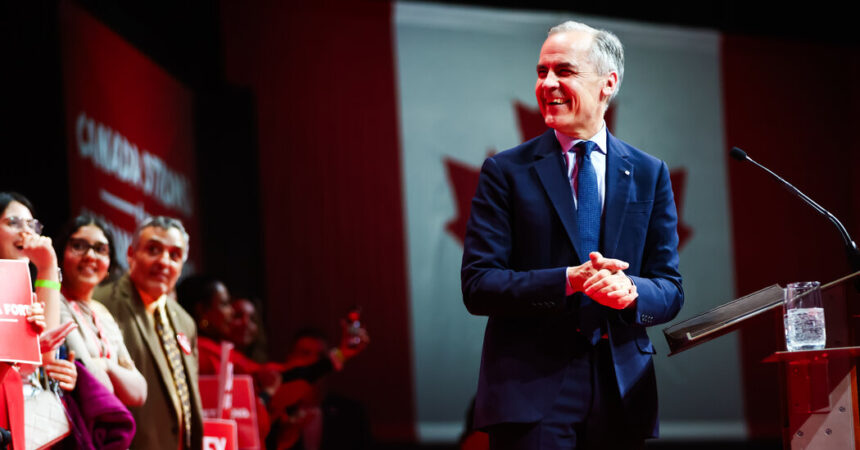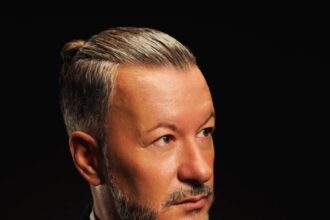Prime Minister Mark Carney of Canada won a new mandate on Monday night, the national issuer CBC/Radio Canada projected, a remarkable change for his liberal party, or in much of the aggressive position of President Trump in the country.
Even so, much was at stake in the elections. The leader of the Conservative Party, Pierre Poilievre, admitted the elections, but after the east time, it was not yet clear if he had retained the seat in Parliament for 20 years. Mr. Carney pronounced an acceptance speech, but it was not known whether a majority or minority government would form.
It is likely that the preliminary results were Avia, more during the night on Tuesday. A minority government would require the support of other parties to approve legislation and would be weaker and less stable than the majority.
But the decision of the voters sealed an impressive reversal for the Liberal Party that only months ago seemed safe that it would lose to the Conservative Party. Mr. Carney has been prime minister since March, when Prime Minister Justin Trudeau resigned.
The central piece of the acceptance speech of Mr. Carney early on Tuesday morning was Canada’s response to Mr. Trump’s policies.
“As I have been warning for months, the United States wants our land, our resources, our water,” he said. “President Trump is trying to break us so he can own us. That will never happen.” He warned the Canadians that the way ahead would be difficult and could require sacrifices.
When Mr. Poilievre granted the early hours of Tuesday, he said that would continue to be the party leader. The conservative Caucus can eliminate it from the position, which made the two previous leaders after the government failed to form.
The election has been remarkable in many ways, with candidates and many voters who describe it as the most important vote in their lives.
It has bone dominated by Trump and its incessant approach to Canada, the closest ally in the United States and the commercial partner. Trump has imposed tariffs on Canadian goods, pushing the country towards a recession and repeatedly threatened to annex it as state 51. Just as Canadians were heading to the polls on Monday morning, he repeated that desire, arguing in social networks that he would bring economic and military benefits.
Mr. Carney, 60, an experienced economist and policy manufacturer who was promoted as the Anti-Trump candidate and focused his campaign to deal with the United States, finally benefited from the actions of the US President.
Mr. Poilievre, 45, and the conservatives had been dominating the surveys for years, building a platform against the liberals and Mr. Trudeau about the argument that they had dragged Canada to a prolonged economic discomfort.
But they observed that his double digit leads quickly to evaporate after Trump’s aggressiveness to Canada and Trudeau’s resignation.
The Canadians who headed to the polls were worried about both the country’s relationship with their neighbor to the south and with the state of the economy at home. The affair concerns, mainly about homes, were opinion surveys held before the elections were shown.
But Canada’s election on Monday also occurred as a child or referendum against Trump and the way he has the legs covered by the United States allies and their commercial partners.
It is the second great international choice since Trump came to power, after Germany, and the management of the break in the relationship with the United States of Canada is being monitored worldwide.
The election also stressed that Mr. Trump’s conservative policy mark can become toxic to conservatives in other places if they are considered too aligned with their ideological and rhetorical style. Poilievre, who criticized “Radical Woke Ideology,” promised to define the Canadian national broadcaster and said he would have foreign help, seemed to have lost centrist voters, the pre -electoral surveys suggested.
For Mr. Carney, Monday’s victory marked a surprising moment in his rapid increase in Canada’s political establishment since he entered the race to replace Mr. Trudeau in January.
A political veteran, but with policy formulation, Mr. Carney transmitted a serious tone and challenge measured and the challenge to Trump’s aggressive proposals, helping to influence the voters who had legs contemplating support for conservatives, according to surveys and some individual voters. And his policy as pragmatic and centrist seemed to align themselves better with Canada’s mood after a decade or the progressive agenda of Mr. Trudeau.
The way ahead of Mr. Carney and his new government will be difficult. To begin with, you will have to commit to Trump and its unpredictable attitude Townd Canada and discuss expensive issues, including trade and security.
And you will need to show voters that their economic policy credentials can really be used to improve the slow economic growth of Canada and persistently high unemployed.








